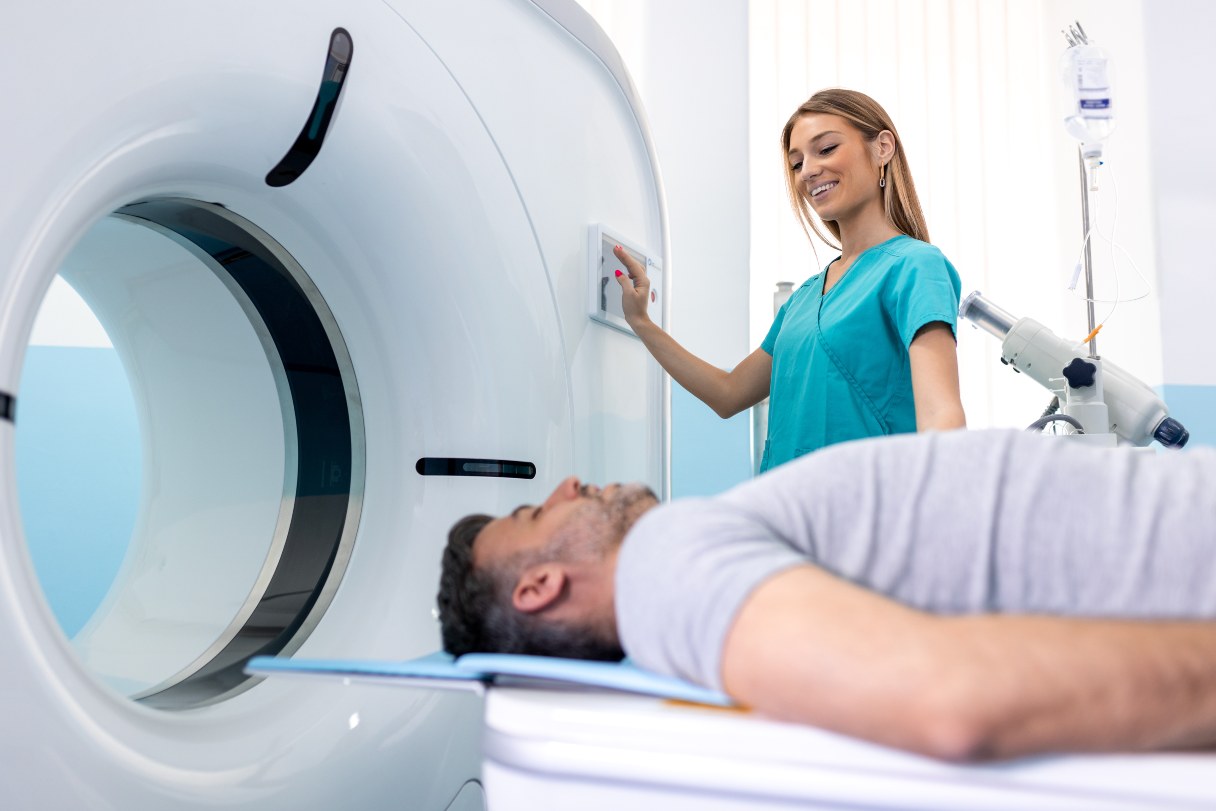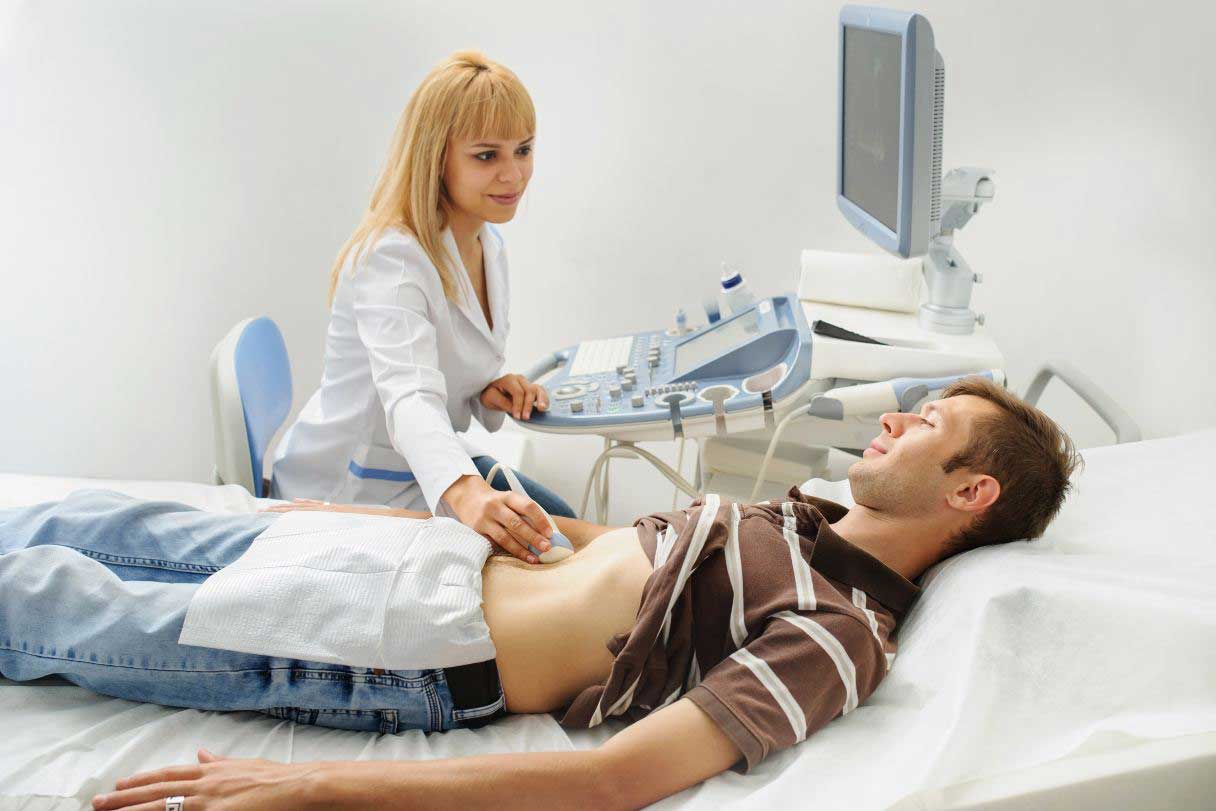Full-body scans are growing increasingly popular. You may have heard of celebrities getting them to check for underlying diseases, or perhaps someone you know got one to more precisely measure their body fat. What you may not realize is that there are different types of full-body scans done for different purposes. Almost none of these are covered by health insurance plans, and the cost can vary widely depending on what type you want to get. If you're considering getting a full body scan, always consult with your doctor or professional provider first.
What Is a Full-Body Scan?
A full-body scan is a type of imaging test that scans and measures the entire body to evaluate different bodily conditions.2
The purpose behind full-body scans differs depending on the type of scan you're getting. One of the most popular types touted recently by celebrities is a full-body MRI (magnetic resonance imaging).1 A number of companies have jumped on the trend and are focused on offering these scans to customers.
Before full-body MRIs became popular, whole-body CT (computed tomography) scans were more widely advertised. This is typically faster than an MRI but involves a low dose of radiation during the scan.2
Another type of full-body scan is called a DEXA (dual energy X-ray absorptiometry) scan. DEXA involves low-level X-rays. These scans may be used to check for bone density or body fat.2
How Much Do Full-Body Scans Cost?
The cost of a full-body scan varies significantly depending on what type you need or want. Here's a quick breakdown.
| Type of full-body scan | Average cost range | Amount of time |
|---|---|---|
| Full-body MRI | $2,000 to $2,5003 | 60 minutes4 |
| Whole-body CT | $500 to $3,0005 | 10 minutes to an hour5 |
| DEXA | $40 to $3006 | five to 10 minutes7 |
Because scans aren't typically covered by health insurance, you'll need to be able to afford the out-of-pocket cost to get a scan yourself.8
It's worth noting that one company, called Ezra, also offers an alternative MRI scan called a full-body flash.8 This utilizes 3T MRI for a higher resolution, but it skips scanning the spine and lungs.8 Instead, it uses AI technology to enhance images at a faster rate and help with interpretation.8 This scan takes 30 minutes and costs $1,350.9 Other companies may offer scans that leave out certain parts of the body to help reduce the price.
Does Health Insurance Cover Full-Body Scans?
Most full-body scans are not covered by health insurance since they're considered elective.1 If you want a scan that's covered, you'll need to wait until your doctor recommends one for you.1 Sometimes, this can happen based on your symptoms; sometimes, it's part of a preventive schedule that insurance approves, like mammograms and colonoscopies at specific ages. These scans are limited, however, to specific body parts and don't cover the entire body.
Preparing for a Full-Body Scan
The preparation you'll need for a full-body scan depends on the type you're getting.
MRI or CT scan
Before an MRI scan, you may be asked to drink only clear liquids for the four hours leading up to your test, and remove all jewelry or metals before your scan. You'll lay down in an MRI machine and may be given music to listen to during the scan.10
If you're claustrophobic, you'll want to request a mild sedative from your referring doctor before you arrive.11 You may also not be eligible if you have certain medical devices, like a pacemaker.11 Depending on the type of MRI machine, the scan might take about 60 minutes.4
For a full-body CT scan, the prep is similar. You'll want to not eat or drink for a certain amount of time before your scan (which your specialist will inform you about). If you need contrast, this can affect how long you should fast beforehand.12
DEXA scan
DEXA scans require little preparation. You may be asked to not eat for at least three hours before your scan and to be well hydrated. If you're getting a bone density reading, you may also need to avoid calcium supplements for 24 hours before your scan.13
Benefits vs. Potential Risks of Full-Body Scans
Full-body scans come with a number of pros and cons, depending on the kind you want to get.
Benefits of full-body MRIs and CT scans
Whole-body MRIs and CT scans can sometimes alert you to health concerns that you might not have been aware of otherwise. One study found that about 32% of people who had full-body MRIs without any disease symptoms discovered a potentially relevant abnormality in their scan.1
So yes, full-body scans can sometimes detect cancer and save lives.1 They may alert you to an early incidence of cancer or another health issue that might not otherwise have been noticed.8 The scans can be especially beneficial if someone has a family history of a particular disease or if other risk factors at play.14
These scans can also be helpful if you're dealing with a long wait list, providers who rush through appointments leaving you feeling like you aren't being heard or simply can't get an insurance-covered procedure done that you truly feel you need.14
If you're weighing the pros and cons, always consult with your doctor or professional provider.
Potential risks of full-body MRIs and CT scans
An overview of people who had full-body MRI scans without any disease symptoms discovered that about 2% had false negatives (meaning a disease like cancer was missed) and 16% had false positives (meaning a disease was detected that the person didn't have). Since it's difficult to determine if an abnormality could lead to a devastating disease, most people will err on the side of caution, possibly having surgery, radiation or chemotherapy they don't actually need.1
Some doctors are concerned that sensitive machines will find normal body variations and flag them as abnormal. For example, many people have nodules or masses that are harmless but might be flagged by a whole-body MRI.14
MRIs themselves don't involve radiation.11 But there's a concern that the subsequent PET/CT scans performed after an abnormality is found on a full-body MRI could cause unnecessary radiation exposure, possibly increasing the risk of other cancers.1
CT scans are viewed with similar skepticism. The American College of Radiology™ has said there's not enough evidence to recommend a whole-body CT scan for someone with no symptoms or family history.2 Because CT scans involve low doses of radiation and contrast agents, they may not be appropriate for the general public.11 In addition, CT scans may have more trouble differentiating tumors than MRIs.11
Benefits of DEXA scans
As for DEXA scans, these have the clearest benefits among the full-body scan options. Many experts agree that DEXA scans are highly accurate for assessing your body composition.2
The scan can accurately detect things like total body fat percentage, fat mass index, visceral adipose tissue, skeletal muscle mass, resting metabolic rate, bone density and more. Depending on your goals, you might even want a follow-up scan in six months to a year.13
Potential risks of DEXA scans
DEXA scans have few risks. The radiation in a scan is similar to what is used in regular X-rays, so the risk of cancer is no greater than from a regular X-ray.15
Managing Health and Wellness Costs With the CareCredit Credit Card
If you are looking for an option to help manage your health and wellness costs, consider financing with the CareCredit credit card. The CareCredit credit card can help you pay for the care you want and need and make payments easy to manage.* Use our Acceptance Locator to find a provider near you that accepts CareCredit. Continue your wellness journey by downloading the CareCredit Mobile App to manage your account, find a provider on the go and easily access the Well U blog for more great articles, podcasts and videos.
Your CareCredit credit card can be used in so many ways within the CareCredit network including vision, dentistry, cosmetic, pet care, hearing, health systems, dermatology, pharmacy purchases and spa treatments. How will you invest in your health and wellness next?
Author Bio
Stephanie Dwilson specializes in science journalism, breaking news and animal health and is a business owner, non-practicing attorney and writer.








